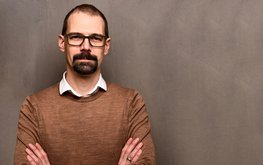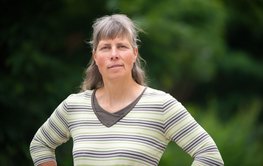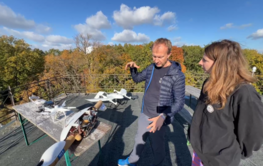‘We need to focus more on land use change,’ says Prof Martin Herold in an interview on the occasion of the 29th Conference of the Parties to the UN Framework Convention on Climate Change COP29 in Baku
At the 22nd Autumn School of the GFZ School Lab, scientists from various research institutions offered training to around 100 teachers on the topic of ‘Urban spaces: hotspots in the Earth system’.
The committee advises the National Research Data Infrastructure NFDI. It aims to optimise the indexing, storage and access to the increasing amount of research data.
New genetic methods can differentiate between the DNA of living and dead microorganisms. This enables deciphering the diversity of life and its processes under extreme conditions.
In the EU project GERACLE, an international team coordinated by the GFZ will investigate consequences of polarity reversals in the Earth's magnetic field. 3.3 of 10 mio euros will go to the GFZ.
In October 1994, the drilling for the deepest hole in Germany reached its final depth of more than 9 kilometres. A ceremony with an open day was held on site in Windischeschenbach (Bavaria).
Twitch streamer Sofia Kats & Felix Pohl from the UFZ reported live in a new format of science communication - about drones & satellites, mountain formation & earthquakes. Watch the video here.
A review in questions and answers by experts from the Helmholtz Research Field “Earth and Environment”: GFZ, Helmholtz Centre for Environmental Research UFZ and Karlsruhe Institute of Technology KIT
In an interview, GFZ Scientific Director Susanne Buiter and Wolfgang zu Castell, Department Director Geoinformation, explain the background to the ‘Declaration on Research Assessment’ (DORA).
The GFZ awards its highest honour to geophysicist and drilling expert from Stanford University, USA


![[Translate to English:] Martin Herold standing in front of the library on the Telegrafenberg](/fileadmin/_processed_/c/d/csm_Martin_Herold_1cfbe99391.jpeg)
![[Translate to English:] Many people are listening to a presentation in the GFZ lecture hall.](/fileadmin/_processed_/c/a/csm_1_Bild1_hell_6be603fa54.jpeg)






![[Translate to English:] Both scientists sitting on stools in front of a wall of books in the Telegrafenberg library](/fileadmin/_processed_/6/6/csm_Buiter_Castell_DORA_4_38f987ebba.jpeg)
![[Translate to English:] Gruppenbild mit 4 Personen](/fileadmin/_processed_/8/d/csm_20241017_GFZ-Emmerman-Medal-005_web_reinhardtundsommer_e6f00dc0df.jpeg)